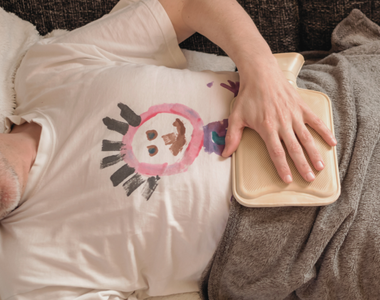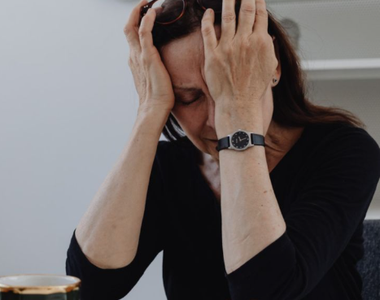
What is anthropophobia?
Anthropophobia, sometimes spelled anthrophobia, is defined as fear of people. "Anthro" means people and "phobia" means fear. Although not a clear clinical disorder in the fifth edition of the Mental Disorders Diagnostic and Statistical Manual (DSM-5), it can be considered a specific phobia.
Aspects of this phobia can be seen in a range of other clinically known disorders. It has to do with the fear of interpersonal relationships, especially offending others.
Relationship with social anxiety disorder
Although anthropophobia may be part of the social anxiety disorder, they are not the same thing. Social anxiety disorder involves strong anxiety when you are in a social situation. It can happen when you are at a party or have a date, or even when you want to interact with a cashier or cashier in a store.
A person with social anxiety feels uncontrollable fear that they will be judged or rejected by other people. They often end up avoiding all social situations whenever they can.
In theory, however, anthropophobia may include symptoms unrelated to social interaction.
What causes it?
It is not always clear what causes a phobia. It may depend on the person and past experiences. Sometimes there is no clear cause at all. Possible factors include:
- negative events or experiences with a certain thing or person
- genetics
- environment
- learned behaviors
- changes in brain function
What are the symptoms?
Because anthropophobia is not a clinical condition, there are no specific clinical symptoms. However, it can be considered under the DSM-5 classification of "specific phobia". Criteria for this disorder include:
- Ankthi ose frika e madhe për një situatë ose send të caktuar (në këtë rast, një person ose njerëz).
- Situata shkakton pothuajse gjithmonë ankth ose frikë.
- Situata ose gjëja shmanget sa herë është e mundur.
- Reagimi i frikshëm është në mënyrë disproporcionale me rrezikun aktual.
- Ankthi zgjat gjashtë muaj ose më shumë.
- Ankthi shkakton shqetësim të dukshëm ose pengon funksionimin e përditshëm në një farë mënyre.
- Këto simptoma nuk janë shkaktuar nga një çrregullim tjetër ose gjendje mjekësore.
Duhen patur parasysh:
1. Një person takon dikë të ri dhe është i bindur se ky person dëshiron ta lëndojë. Kjo shkakton frikë. Në këtë rast, një diagnozë e çrregullimit delusional ka të ngjarë të merret në konsideratë në vend të antropofobisë.
2. Një person shmang ose ka frikë nga një person që mund të ketë abuzuar. Ai mund të jetë duke përjetuar simptoma të shokut post-traumatik dhe jo antropofobi.
3. Një një person shmang festat ose ngjarjet e tjera shoqërore për shkak të frikës se mos tallet. Kjo ka të ngjarë të vlerësohet si çrregullim i ankthit social.
4. Një një person qëndron në shtëpi gjatë gjithë kohës sepse ka frikë se do të ketë një sulm paniku në një vend publik dhe për këtë arsye do të vihet në siklet. Ai mund të ketë agorafobi, pasi frika nuk është specifike për njerëzit në përgjithësi.
5. Dikush ka një model të vazhdueshëm dhe afatgjatë të ndjeshmërisë ekstreme ndaj refuzimit. Prandaj, preferon izolimin shoqëror. Ai mund të ketë çrregullim të personalitetit shmangës dhe jo antropofobi. Kjo sepse nuk ka frikë, në vetvete, nga njerëzit.
Këshilla për menaxhim
Të jetosh me antropofobi ose një gjendje që përfshin këtë fobi mund të jetë sfiduese. Por ka gjëra që mund të bëni për të lehtësuar simptomat, të tilla si dieta dhe stili i jetesës i shëndetshëm, shmangia e kafeinës, gjumi cilësor dhe shmangia e izolimit shoqëror.

- Për të luftuar vetminë, studimi sugjeron të veproni kështu për 10 minuta
- ‘Daddy issues’, termi i keqkuptuar dhe i keqpërdorur – Çfarë është dhe si ta kuptoni nëse e keni
- 1 në 10 njerëz e ka: Çfarë është aleksitimia – shkaqet, simptomat, kurimi
- Koronafobia është një çrregullim i ri i pandemisë: Ja çfarë duhet të dini
- 4 ilustrime se si përjetohet vërtet ankthi
- Psikologu shpjegon si ky truk 12-sekondësh ju ndihmon të ndiheni më mirë
- Urrejtja për zhurmën e përtypjeve, përplasjes së buzëve etj: Ç’është mizofonia dhe si ta trajtoni
- Sulm paniku vs Sulm ankthi: Cili është ndryshimi
Burimet: Psychology Today, Healthline, WebMD





